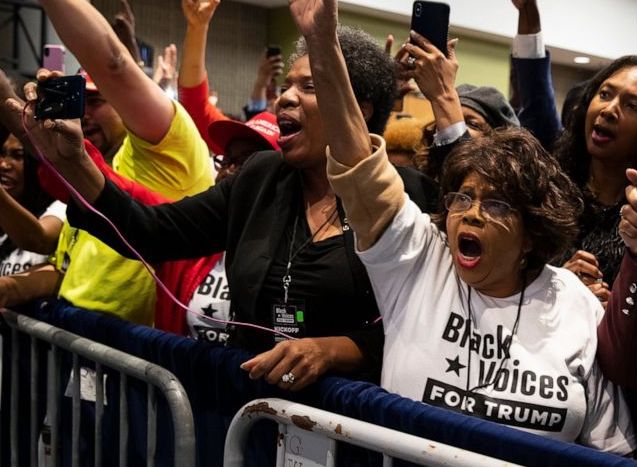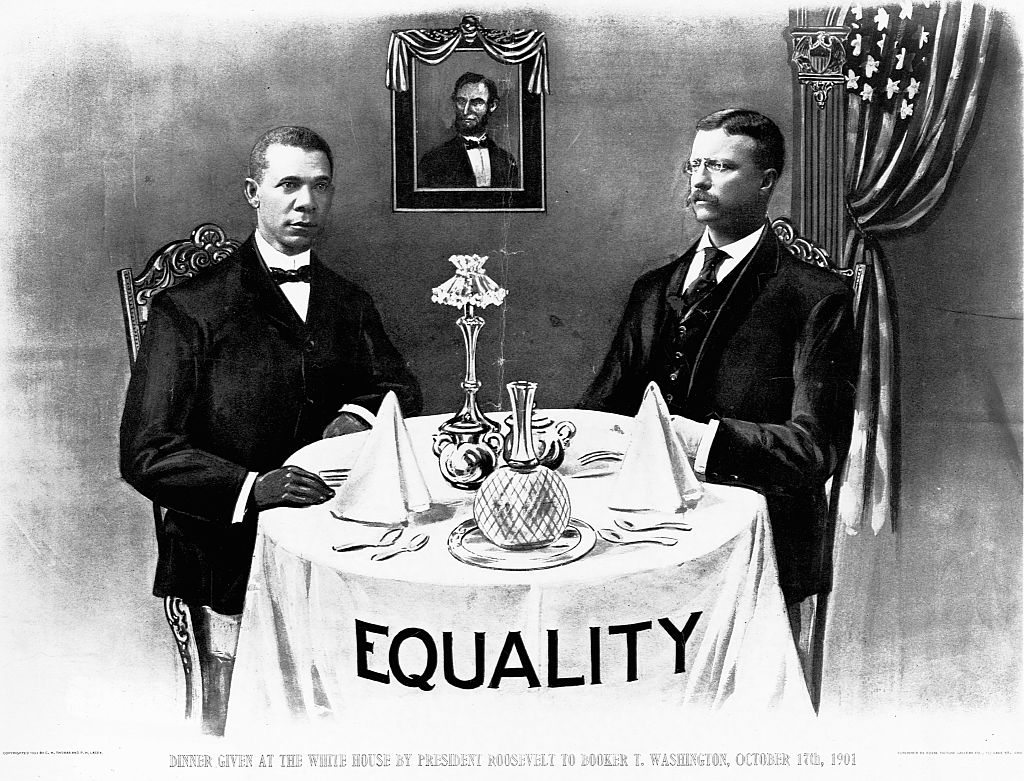Undoing a corrupt eminent domain case doesn’t justify society-wide wealth redistribution.
Reparations by Other Means

It’s not about hypocrisy—it’s about the Left’s warped view of justice.
Days before last weekend’s Super Bowl, a journalist asked NFL Commissioner Roger Goodell how he feels about the fact that while approximately 60 percent of the league consists of black players, the percentage of black people who make up the NFL newsroom is considerably lower. To see the oddity of this question, we need to clarify that for most educated elites, there is only one correct answer. That is, Goodell should have explained that he is very uncomfortable that black people do not make up 60 percent of the NFL newsroom. And he should have clarified that he is making every effort to ensure it will have a black majority as soon as possible.
The sportswriter’s question is interesting mainly because its underlying assumptions run counter to the typical rhetoric from the political Left on matters of diversity. Generally speaking, the acolytes of multiculturalism argue that in a just society, the racial makeup of any organization will reflect the demographic composition of the nation as a whole. By their logic, since 13 percent of Americans are black, then 13 percent of any workplace (or school, or church, etc.) should be black. The so-called “anti-racists” go even further, insisting that any disparities between the actual composition of an organization and the public at large are evidence of racism.
Noting the many exceptions to these rules is, by now, passe. So, what is new in the question put to Goodell? It’s not the lack of anxiety about the wild overrepresentation of black athletes in the league compared to their relatively small numbers in the general public. Rather, the novelty lies in the insinuation that the makeup of other professions that only peripherally deal with the game of football be reconstructed to ensure that they, too, overrepresent the same overrepresented minority—and to the same degree that we see on the gridiron.
Considerable rhetorical sleight of hand undergirds these claims. The reason the NFL is 60 percent black is that professional sporting is one of the last confines of pure meritocracy in America. And it just so happens that excellent football players are disproportionately black. But the people demanding that the newsroom similarly overrepresents blacks are essentially calling for the elimination of meritocratic standards in journalism. Basically, they’re arguing that 60 percent of the NFL should be black because black people tend to be better at football, and 60 percent of sports journalists should be black because black people…tend to be better at football?
Maybe the Left’s inconsistent logic is just an oversight or a single instance of hypocrisy by the people who assure us that they stand on the right side of history? No, things play out the same way in other spheres of American life.
The moralists on the Left have been haranguing us for 50 years that students’ academic success depends on having teachers who “look like them.” This has been the explicit justification for privileging minority applicants when hiring for teaching positions at schools with large populations of minority students. But the Left never carries this line of thought to its logical end. If black students are poorly served when they have a teacher who is not black, white students must be poorly served when they have a teacher who is not white.
To be clear, I am not saying that white students should only have white teachers (because unlike so many “anti-racists,” I’m not a segregationist). Nevertheless, many Americans will have difficulty understanding why, if black students should have black teachers, and Hispanic students should have Hispanic teachers, white students shouldn’t have white teachers.
But that is the position of the educated Left: black students should have black teachers, because it boosts their confidence and motivation, and because only someone who “looks like them” can truly understand and respond to their needs.
White students, on the other hand, should have non-white teachers because seeing someone who doesn’t “look like them” works to dismantle and discourage their supposedly-bigoted assumptions about authority, identity, and expertise. And it’s not just that: twenty-first century America will continue to grow more diverse, and white students need to develop skills for “navigating a multicultural society.” In elite circles, simultaneously holding these mutually exclusive ideas is a mark of intelligence, decency, and common sense.
But the rubes in flyover country intuitively detect the deceptions of the elites when it comes to matters of diversity, equity, and inclusion. Most people just want consistency. If it’s racist when an organization underrepresents one group in relation to their share of the general population, then shouldn’t we be working to decrease the amount of black players to roughly 13 percent to make room on NFL rosters for underrepresented Asian and Hispanic players? Shouldn’t black-owned barbershops be seeking to hire more white people (preferably white women)? And if a student’s academic performance depends on having a teacher who “looks like him,” then isn’t the Left effectively calling for the re-segregation of American education, even while they issue grave warnings about the return of Jim Crow?
It’s important that citizens who are disturbed by these contradictions don’t fall into the easy trap of labelling the Left as hypocrites. These apparent “hypocrisies” of multiculturalists on race and diversity are so frequent, so bold, and so often commented upon that they must be aware of the contradictions. After all, as they regularly remind us, they are very intelligent people—how could they be oblivious to these obvious fallacies? There must be some other explanation, then.
The truth is that while they do care greatly about justice, the Left has a very warped idea of what justice looks like when it comes to race in America. Unfortunately for them, their conception of racial justice is so far out of line with that of regular people that they dare not speak it directly. This is because their view is logically indefensible. But once you understand their unstated aims, the apparent contradictions described above are reconciled. Their actions are no longer contradictory, even if their speech remains so. After inserting the missing piece of their argument, the incompatible elements come into focus as complementary means to achieve a single goal.
From the fifties on, the Left insisted that the goal of their cultural revolution was to level the hierarchies that define our society. In short, they claimed to pursue equality between men and women, blacks and whites, straights and gays, English speakers and Spanish speakers, and so on. Much civil rights era legislation allowed subtle forms of discrimination against racial, sexual, and class majorities—but only as a means to level the playing field, advocates promised. By the end of the twentieth century, the parity the Left wanted had been mostly achieved.
Still, the legalized forms of discrimination they used to achieve that parity were not repealed. Just as the tollbooths that are erected to cover the cost of new roads keep collecting tolls long after the highway is paid for, any call for reform legislation that favors minority groups is for naught. After all, we can’t “turn back the clock.” On the contrary: it seems the more equal our society becomes, the more aggressive the demands for favoritism toward minorities become. This hints at the unspeakable mission: the aim was never equality, parity, or even “equity.” In point of fact, the aim is to deliberately and decisively advantage minority groups and minority interests at every level of our society.
But why?
In the moral tabulations of the Left’s victimology, black Americans reside at the peak of the intersectional hierarchy, meaning that society must operate on the assumption that they have suffered the gravest forms of injustice. Progressives pursue their own political power by exploiting this assumption, insisting that their primary goal is redress for any and all victims of American history. As the victims with the deepest grievances, black Americans are due the greatest redress.
For years, Left-radicals have promoted monetary reparations as the preferred way to settle the nation’s moral debt: that is, transferring cash payments in lump sums to all black people living in the United States.
But practical problems have made nationwide reparations a non-starter. Who, after all, counts as “black”? How black does one have to be to qualify for restitution? How much money is owed? Who pays? How long must a family have resided in the United States to be eligible? Definitively answering these questions would require an uncomfortable kind of ethnic calculus not seen in America since Reconstruction. And while proposals for reparations have had some success in the craziest strongholds of leftism, most citizens have decided it’s best not to open that Pandora’s Box.
But direct payments are not the only means to compensate the nation’s minorities. It’s undeniable that after the 2020 race riots in response to the death of George Floyd, new forms of favoritism toward minorities in general—and blacks specifically—have speedily spread across the country. Explicit advantage is given to these groups when it comes to hiring, promotion, loans, eligibility for federal grants and disaster relief, and criminal prosecution. After the Supreme Court disallowed Harvard’s discriminatory admissions policy, it took the university only hours to announce that it would achieve the same discriminatory ends by different means.
Similarly, the reforms enacted across our society since 2020 can only be understood as reparations by other means. When it became clear that direct transfers of wealth would not be achieved, American institutions created policies (stated and unstated) that allowed indirect transfers of wealth. Over time, favoring minorities in university admissions, the workplace, and the cultural industry were used to achieve this objective. The traditional value of meritocracy threatens this goal, which is why it’s under attack everywhere…except in places like the NFL, where meritocratic policies advantage minorities.
An agenda of covert reparations offers a rational explanation for the Left’s apparent contradictions when it comes to equality and diversity. In the NFL, meritocracy is good because it ensures the overrepresentation of black people. And in sports journalism, meritocracy must be eliminated because it inhibits the overrepresentation of black people. In the schools, minority students should have minority teachers because it justifies favoring them in the hiring process. And white students should have minority teachers because it justifies favoring them in the hiring process. What appear to be logical contradictions from the advocates of multiculturalism actually form a coherent agenda—that is, when you understand the unstated aim.
Ultimately, perhaps reparations for some are in order. But in a healthy democracy, such a policy would be subjected to a rigorous process of deliberation—and it would only be implemented after finding a meaningful national consensus on the matter. That ideologically-motivated institutions are effectively enacting such a policy at will is one more sign of our political dysfunction. And all of this is to say nothing of the ethical framework that supports any policy of reparations: it insists that the past is never past. It fuels a rigid eye-for-an-eye perspective that holds out no hope for forgiveness or reconciliation. And it validates a politics of revenge and the satisfaction of grievances. As long as such a moral orientation is the dominant one in our society, the prospects for national unity and cooperation will continue to decay.
The American Mind presents a range of perspectives. Views are writers’ own and do not necessarily represent those of The Claremont Institute.
The American Mind is a publication of the Claremont Institute, a non-profit 501(c)(3) organization, dedicated to restoring the principles of the American Founding to their rightful, preeminent authority in our national life. Interested in supporting our work? Gifts to the Claremont Institute are tax-deductible.
The Jewish Left backed the creation of a society that loathes them.
Why African Americans should be very, very mad at the Democratic Party
Renouncing race is the answer to restoring our humanity.
African Americans are under no obligation to renounce their black identity.
We can’t speak rightly of justice if we’re too crazy and exhausted to think straight.






